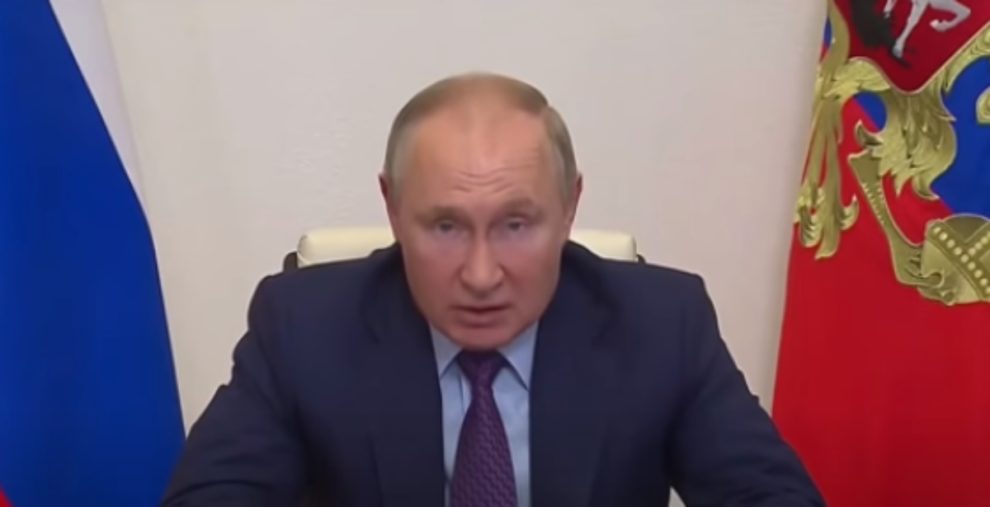Russia on Monday claimed that Ukraine was in the “final stages” of developing a so-called dirty bomb to use against Moscow’s forces, allegations Kyiv said were “absurd” and could signal Russia’s battlefield plans.
The claim from Moscow comes after a string of unexpected and rare calls between Russian Defence Minister Sergei Shoigu with counterparts from several NATO countries, in which he said Kyiv was planning to deploy the weapon.
But they also follow on the back of weeks of military defeats for Russia in southern and eastern Ukraine, with observers of the conflict and Kyiv saying the Kremlin was becoming increasing desperate.
“According to the information we have, two organisations in Ukraine have specific instructions to create a so-called ‘dirty bomb’. This work is in its final stage,” Lieutenant General Igor Kirillov said on Monday.
At its most basic, a dirty bomb is a conventional bomb laced with radioactive, biological or chemical materials which are disseminated in an explosion.
Inspection mission
Since Russia’s allegations and thinly veiled threat of potential nuclear escalation in the Ukraine fighting, both Kyiv and its allies have fiercely rejected the claim.
Ukrainian Foreign Minister Dmytro Kuleba said the head of the United Nations nuclear agency (IAEA), Rafael Grossi, accepted his request to “urgently send experts to peaceful facilities in Ukraine, which Russia deceitfully claims to be developing a dirty bomb.”
The United Kingdom, the United States and France issued a joint statement dismissing the claim earlier on Monday.
“Our countries made clear that we all reject Russia’s transparently false allegations that Ukraine is preparing to use a dirty bomb on its own territory,” according to the statement.
Ukraine has managed, with the help of Western-supplied heavy weapons, managed to claw back swathes of its territory from Russia in the east and south, while its power grid has been pummelled ahead of winter’s arrival.
As momentum has swung toward Ukraine, Russian President Vladimir Putin has faced fissures in domestic support for his campaign, as a messy draft of troops and battlefield losses challenged notions of quick conclusion.
Neither side in the conflict are near sitting down for peace talks. Putin is under intense pressure to achieve a result he can call victory and the Ukrainians are generally intensely mobilised to take back their territory.
The Kremlin said on Monday that France and Germany were showing “no desire” to participate in mediation on the conflict and praised Turkish President Recep Tayyip Erdogan’s offer to organise talks.
Turkey helped broker the deal that allowed grain exports to resume under the UN’s aegis in July, and also played a role in a prisoner swap in September, one of the largest exchanges.
Russia TV presenter apology
Yet French President Emmanuel Macron on Sunday said Ukrainians will decide when peace is possible.
He supported Western backing for Kyiv “so that at some point the Ukrainian people can choose peace… in the terms they will have decided”.
Since the beginning of the conflict in February, Macron has differed from other Western leaders in pushing to keep talks open with Putin.
The conflict is also being constantly waged via volleys of accusations and insults between the two sides, although even they admit that sometimes it goes too far.
Anton Krasovsky, a 47-year-old pro-Kremlin pundit under Western sanctions, said on Telegram that his comments had been “wild, unthinkable”.
Krasovsky’s comments last week sparked an uproar on social media, after he responded to a guest talking about meeting Ukrainian children in the 1980s who said they saw Russia as an occupier in Soviet times.
These children “need to be drowned”, Krasovsky said. “Shove them into their huts and burn them up.”
